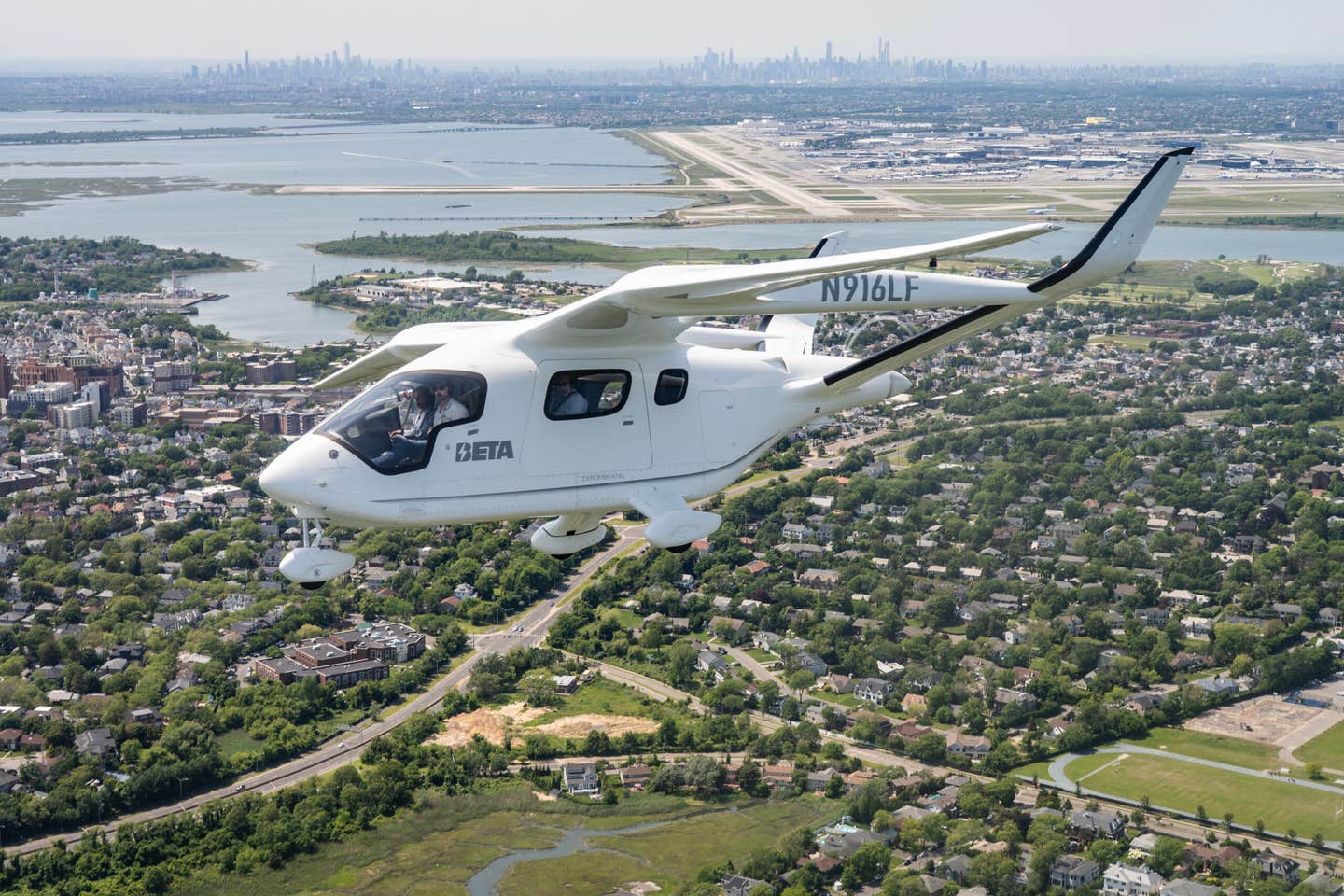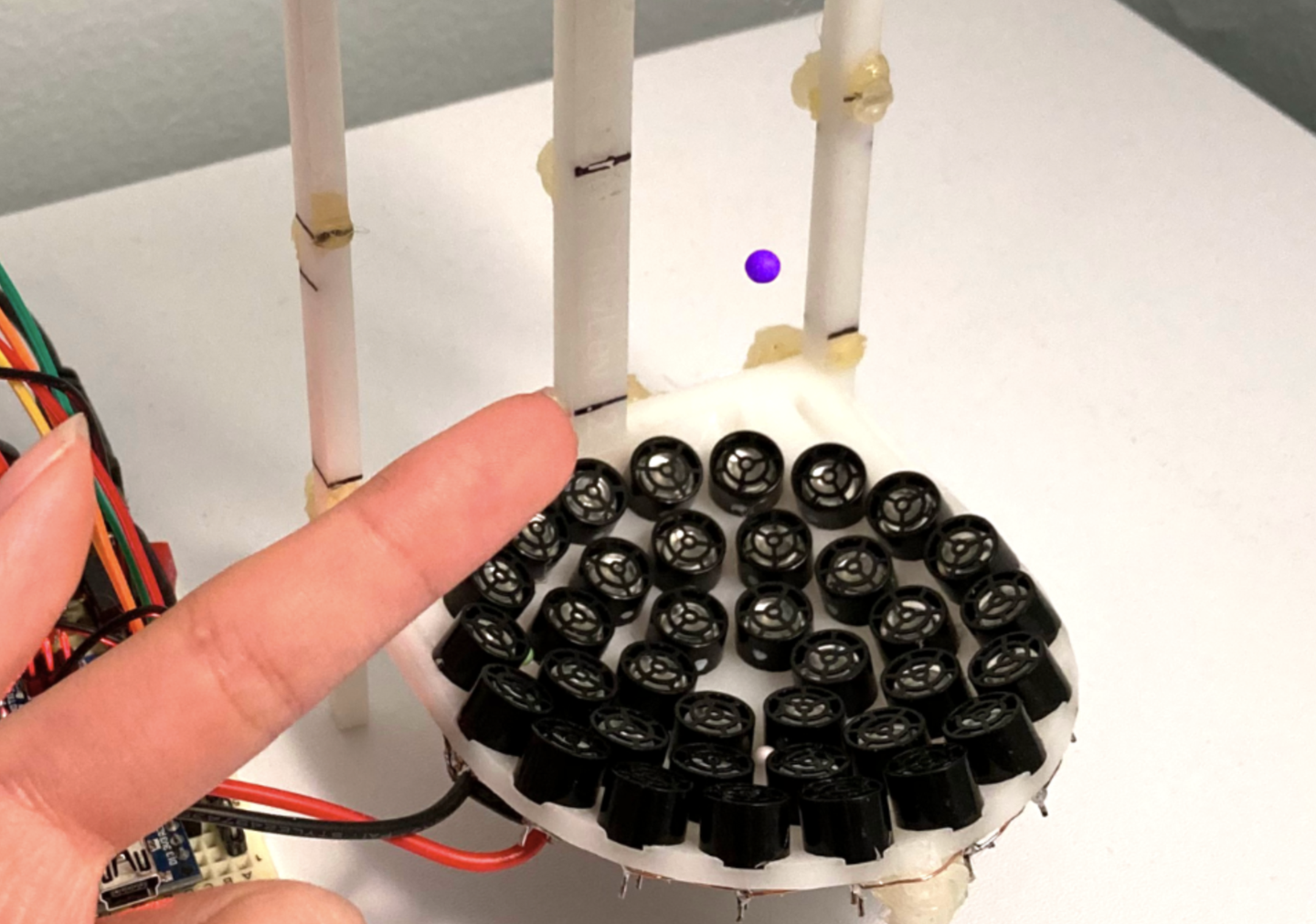BETA Technologies’ all-electric plane lands at Boeing Field, marking a milestone for clean aviation
BETA Technologies’ all-electric plane lands at Boeing Field, signaling a new era of quiet, clean, and fuel-free flight.

 Edited By: Joshua Shavit
Edited By: Joshua Shavit

An all-electric plane’s quiet landing in Seattle marks a major step toward sustainable aviation and a cleaner future for flight. (CREDIT: BETA Technologies)
This week, the roar of engines at Boeing Field gave way to the quiet hum of progress as a different kind of airplane landed, a plane with a flight that is entirely electric. For a moment, the usual thunder of takeoffs paused as onlookers watched a piece of the future glide in almost silently, leaving behind not exhaust but excitement.
"That's the first electric aircraft to land at Boeing Field," said David Decoteau, Deputy Airport Director. This is not just monumental in terms of engineering; this signals a new age of aviation that's better for the environment, has a lower cost, and has reimagined travel.
A New Kind of Airplane
Constructed by Vermont's BETA Technologies, this slick and unusual aircraft is unlike anything most have seen in the sky before. Rather than having pistons and turbines, it has electrons, powered by electric motors and advanced batteries. "This is our all-electric aircraft," BETA representative Thea Wurtzburg explained. "This is our fixed-wing aircraft that we flew out here from Vermont, where our company is based."
The airplane is called an ALIA CTOL, can travel up to 336 nautical miles, and is designed to carry passengers or cargo. Overall, its smooth wings, rear propeller, and whisper-quiet operation seem more like science fiction.
For Decoteau and his team at the King County International Airport, it signals a commitment to make the airport an electric aviation leader. "Beta has been a great partner," he stated. "We've been collaborating with them for more than one year, setting up a charger here at Boeing Field, and we are proud they’ve chosen us as their northwest base."
Transforming Aviation
Beta is aiming for more than just a one-time landing. The company is developing two electric aircraft models, the fixed-wing ALIA CTOL and the vertical takeoff and landing version ALIA VTOL. Kyle Clark, founder and CEO of the company, called this Seattle stop "a step toward a future where electric aviation is accessible, reliable, and supports the surrounding communities."
Electric aircraft could reshape the way people travel between smaller cities, rural towns, and hospitals. "Because they are electric, they have a lot lower operating costs," Wurzburg continued. "They are going to open new use cases, like increasing access and health care, and transporting passengers between smaller communities."
For now, the company will continue working with the Federal Aviation Administration to achieve public certification. After the certification is issued, the next step is to begin full production, along with continued deployment of a growing charging station network across North America.
Creating a Sky-based Ecosystem
BETA is not just building airplanes but also the system of charging stations to power the airplanes. BETA has developed and installed a network of charging stations for airports and electric aviation hubs. Tying the ecosystem together in this manner makes BETA stand out.
The plane has flown thousands of test flights and has covered almost 83,000 nautical miles across North America and Europe. The U.S. military has used it for training, and it has been flown by the Federal Aviation Administration itself. BETA has also partnered with GE Aerospace to co-engineer a hybrid-electric turbogenerator for both defense and civilian use as part of a $300 million investment by GE.
The Business of Green Flight
Beta Technologies has filed paperwork for an initial public offering in the United States on the New York Stock Exchange and plans to do business as "BETA." The IPO has a lead underwriter, Morgan Stanley and Goldman Sachs, which will value BETA at more than $7 billion.
BETA's IPO filing states the company's aircraft have 42% lower operating costs than conventional aircraft, as it has eliminated costly components like gearboxes and liquid-cooling systems. The company, founded in 2017, is capitalizing on a global appeal of investor excitement about clean technologies, electric vehicles, and innovation in aerospace.
"Beta's IPO fits with two themes that investors are currently intrigued by: electrification as a long-term trend, and a revived appetite for select growth stories," said Kat Liu, vice president of IPO research firm IPOX.
There is a large momentum building for electric aviation, and the state of Washington has emerged as one of the leading locales in the budding industry. Washington State has a storied history to leverage in aviation, from William Boeing's early jetliners to what is now the craft of e-planes. In addition to BETA, there are companies like AeroTEC in Seattle and magniX in Everett testing hybrid and electric aviation.
A Moment in History
When the ALIA CTOL descended over the city of Seattle more than a century after the residents watched their first airplane fly, it felt like a historic moment.
For many who watched, it wasn’t just a test. It was a glimpse into the future of human travel. And for pilots, engineers, and passengers alike, it carried something rare: hope that flight can once again be a symbol of wonder, not waste.
Related Stories
- AltoVolo’s 220 mph hybrid eVTOL aircraft redefines personal air travel
- Joby Aviation’s electric air taxi set to revolutionize urban mobility
- Airwolf takes off: The 140 mph flying motorcycle is here
Like these kind of feel good stories? Get The Brighter Side of News' newsletter.
Joseph Shavit
Writer, Editor-At-Large and Publisher
Joseph Shavit, based in Los Angeles, is a seasoned science journalist, editor and co-founder of The Brighter Side of News, where he transforms complex discoveries into clear, engaging stories for general readers. With vast experience at major media groups like Times Mirror and Tribune, he writes with both authority and curiosity. His writing focuses on space science, planetary science, quantum mechanics, geology. Known for linking breakthroughs to real-world markets, he highlights how research transitions into products and industries that shape daily life.



